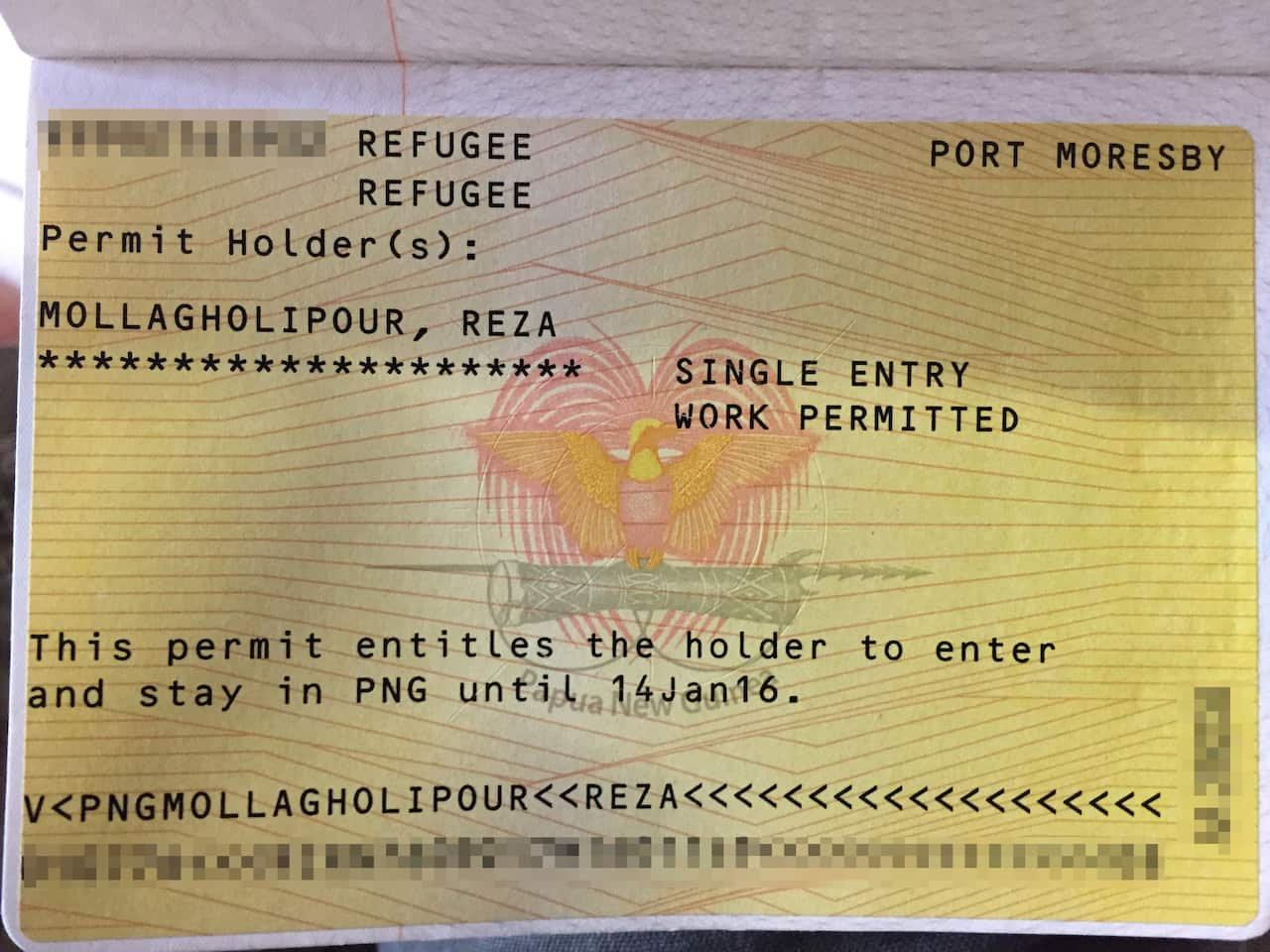Dozens of refugees have been released from Australian-run detention centre and they accuse Australia and PNG of lying to them about their rights.
Ten months on, and PNG's government is still working on a resettlement policy.
"I was the first one who was accepted to come here, they tried to show me to everyone, even to the Australian government, [to show that] that they [the refugees] are settled and they are happy,” said Reza Mollagholipour from Iran, one of the first two refugees released in January.
"When I was released from the detention centre, I was very happy, after 18 months. I was told 'in a few days you will go out of detention centre and start (your) own life'."
The Manus Island transit centre for recognised refugees was supposed to be a temporary home for the men.
Off-limits to the media, secretly filmed footage obtained by SBS World News shows a dusty and desolated new home at East Lorengau.
Mr Mollagholipour says the transit centre has not lived up to its name.
“After a few months I understood that I was played by them. I'm sorry to say they were lying (to) me. They were lying, they lie.
“I mean PNG immigration, they can't do anything. [in] this country there is a lack of infrastructure to accept refugees, but they did."
After being told they would never be resettled in Australia, the refugees were given 12-month visas and work permits for Papua New Guinea.
Manus provincial governor Charlie Benjamin said he believed the deal between Australia and PNG was for a temporary home for the refugees.
"First let's say, when I became governor I agreed for Manus to process asylum seekers, but we never agreed for them to settle here,” said governor Benjamin.
“When the prime ministers of our two countries agreed we would take them into our country, that was an issue and still is an issue.
“Papua New Guinea is a Christian country, and while we agreed to help, we are a bit reluctant when they do not want to be settled here - that's an issue. I prefer for them not to be settled in Manus."
The refugees at the transit centre near Manus Island's main town of Lorengau are free to move around the island, a tropical paradise.
Mr Mollagholipour is a civil engineer. He was offered a job interview in the capital Port Moresby, but he was banned from leaving Manus Island.
His visa for PNG says he can work and travel, but a letter from the Department of Immigration says the opposite.

"This paper is signed by immigration, PNG immigration, and this work permit is signed by immigration and they are the exact opposite of each other,” said Mr Mollagholipour.
“That says Reza can travel in PNG, but that paper says very seriously 'Reza you cannot leave this island until I allow you'. It's funny. I tell them, this means everyone who signed these documents are liars."
Australia and Papua New Guinea's memorandum of understanding says those moved to East Lorengau will be treated with dignity and respect under the relevant human-rights conventions.
Refugees say neither country has kept its word.
Despite PNG's deal with Australia in 2013 to resettle refugees, including a billion-dollar financial incentive, the government there still has no policy.
“We are making good progress. A number of them have already returned home voluntarily,” said PNG prime minister Peter O'Neill.
“Those who are processed to be genuine, have mostly been identified and we are now talking to communities who are going to receive them as well and we'll resettle them as soon as possible.
“You must understand we have communities with 800 different languages and over 1,000 unique tribes, so it's not as easy as one would think, you pick them up and settle them in metropolitan Melbourne or Sydney. People need to be a little patient with us and we will get there."
Hundreds more deemed as refugees among the almost 1,000 men in the detention centre are expected to move to the East Lorengau centre.
With no travel or work rights, the refugees may be able to check out any time they like, but they fear they will never leave.
"I don't know what's happening, what happens in the future,” said Mr Mollagholipour.
“As soon as I can, I want to leave this country. I've changed my mind. It is really intolerable for me to live in some area that is full of corruption."
